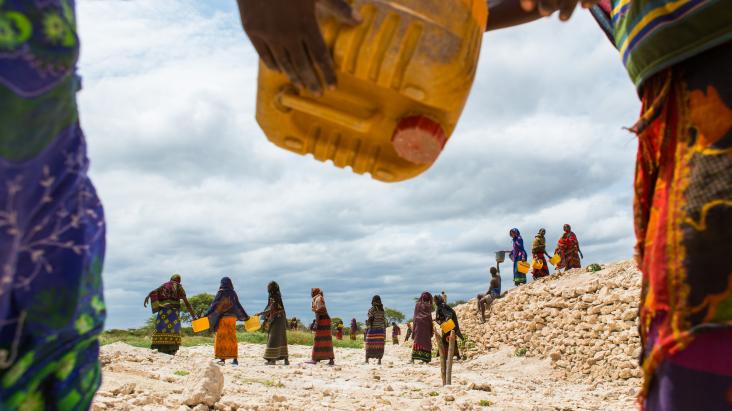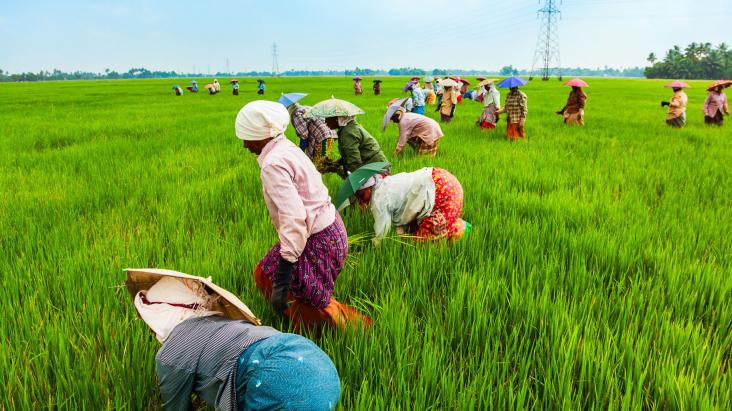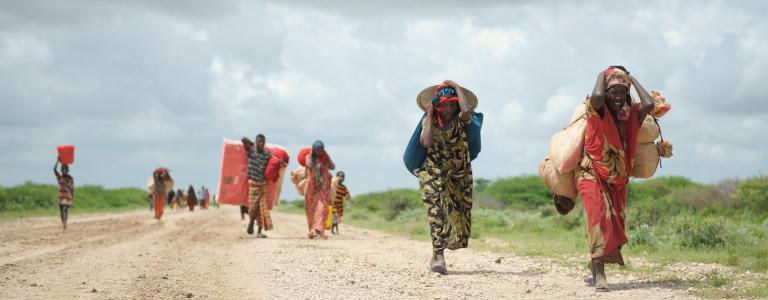Environment, Conflict and Peacebuilding
Promoting the role of ecosystem management and natural resource governance is necessary to moving fragile societies onto pathways of resilience.
The connections between environmental issues and conflict are many and complex. Environmental factors themselves are rarely, if ever, the sole cause of violence. But natural resource management and other environmental factors are linked to violent conflicts in a variety of ways often obscured by more visible issues, such as ethnic tension and power politics.
Our experts focus on what can be done about these connections. Namely, they provide a better understanding of how policy-makers and practitioners, working in conflict-affected and high-risk areas, can ensure their work is sustainable and supports the transition from fragility to peace.
Related Projects

Conflict-Sensitive Conservation
Natural resource management is often a source of conflict.

Managing Climate Risks in Fragile States
This research aims to provide guidance on how to simultaneously achieve peacebuilding and climate-resilience objectives in practice.

Green Conflict Minerals: The fuels of conflict in the transition to a low-carbon economy
This reports seeks to understand how the transition to a low-carbon economy—and the minerals and metals required to make that shift—could affect fragility, conflict and violence dynamics in mineral-rich states.
Related Work
Illicit Financial Flows and Conflict in Artisanal and Small-Scale Gold Mining: Burkina Faso, Mali, and Niger
This report examines artisanal mining in border areas plagued by conflict and presents recommendations for policy-makers in Burkina Faso, Mali, and Niger.
Building Peace and Climate Resilience: Aligning peacebuilding and climate adaptation in fragile states
Failure to integrate climate adaptation considerations into peacebuilding plans and post-conflict development agendas can undermine the long-term viability of both.
The NAP Process and Peacebuilding
This briefing note explores the importance and difficulties of bringing adaptation planning and peacebuilding agendas together in contexts of fragility and instability. It will also highlight some of the countries that have already begun to integrate conflict considerations into their adaptation planning processes.
Migration and Conservation: A toolkit for conservation and development practitioners
This toolkit helps conservation practitioners assess the impacts of human migration on critical ecosystems.
Peace, Conflict, and National Adaptation Plan (NAP) Processes
Many conflict-affected states are also among the most vulnerable to climate change. The NAP process offers a chance to break this cycle.
Latest
You might also be interested in

Climate Change Adaptation
As climate risks escalate, we help governments and communities anticipate, cope, and adapt.

Food and Agriculture
Agriculture is on the front lines of nearly all urgent global challenges, from hunger to climate change to rising inequality.

Mining
We work to optimize the benefits of mining and ensure the financial benefits are shared by supporting the development of laws and policies.




